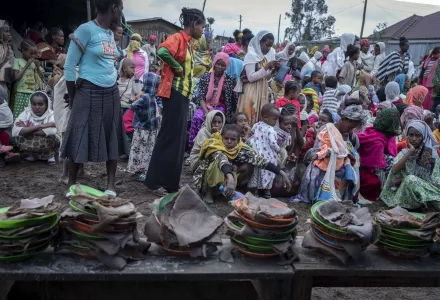
Background
The Tigray Region is the northernmost part of Ethiopia, bordering Sudan to the west and Eritrea to the north. Struggles over national political power have been occurring in Ethiopia since 1960, when a group of government and military leaders attempted a coup against Emperor Haile Selassie. Though initially successful, this political takeover failed after a month, and the emperor remained in power until 1974, when, in the Ethiopian Revolution, he was usurped by the Derg, a military junta.
After the revolution, Ethiopia experienced a devastating civil war between the Derg and anti-government rebels, which concluded in 1991 when a coalition of rebel groups, the Ethiopian People's Revolutionary Democratic Front (EPRDF) overthrew the junta, establishing a federal democracy. The EPRDF had four members: the Tigray People's Liberation Front (TPLF), which always led the coalition, along with the Amhara Democratic Party (ADP), Oromo Democratic Party (ODP) and the Southern Ethiopian People's Democratic Movement (SEPDM).
From 1991 onwards, the EPRDF ruled Ethiopia for 17 years, during which time the Tigray People's Liberation Front (TPLF) had leadership over policy design. After widespread protests in 2018 which resulted in the sudden resignation of Prime Minister Hailemariam Desalegn and a shifting of the EPRDF coalition in 2019, the TPLF lost their control over national politics, though they did remain in power in the Tigray Region. Ethiopia's new Prime Minister, Abiy Ahmed, who first gained political power by coming up through EPRDF ranks, formed a new political party, the Prosperity Party, that took government from 2019 onwards.
Zodgekar, Ketaki. “SVAC Explainer: Wartime Sexual Violence in Tigray, Ethiopia, 2020–2021.” Belfer Center for Science and International Affairs and Women in Public Policy Program, Harvard Kennedy School, March 2023





